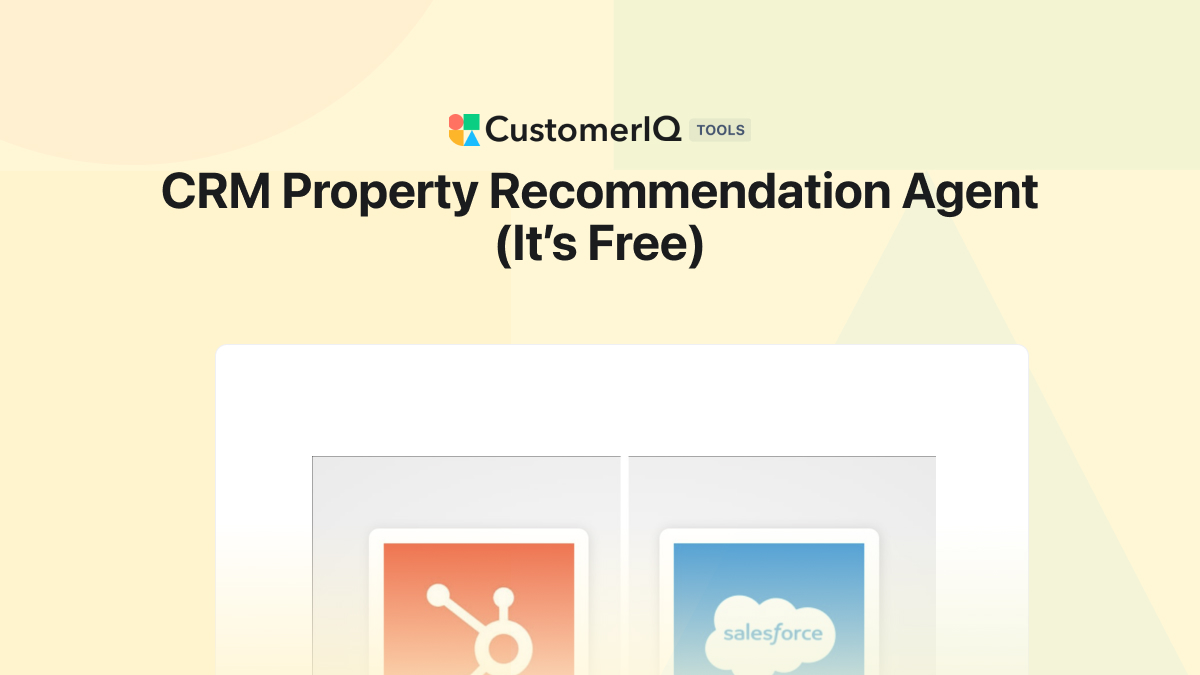
Hire your personal AI email assistant
✍️ Drafts replies & follow-ups instantly – in your voice
⏳ Saves 1 hour per day
Getting the most out of your CRM depends on tracking the right properties for Contacts, Accounts, and Deals. But how do you know if you're missing key fields, or if you're overwhelmed by unnecessary ones?
This quick guide will help you choose impactful CRM properties tailored specifically to your business needs. And if you'd prefer some instant clarity, try our free AI tool to quickly identify the best CRM properties for your team.
Why Tracking the Right Data Matters:
Tracking the right CRM properties is critical because it directly influences your team's ability to make informed, strategic decisions. Effective data tracking enables teams to:
- Accurately forecast revenue: Reliable data on deal progression and key indicators ensure accurate revenue predictions.
- Optimize sales processes: Understanding what's working and what's not enables continuous improvement of your sales strategy.
- Enhance segmentation: Precisely segmenting contacts and accounts improves targeting, personalizing outreach, and increasing conversion rates.
- Identify growth opportunities: Tracking the right data helps highlight trends and signals, guiding your team toward strategic actions for growth.
Example: By tracking the property "Champion Identified" in your deals, your sales team can prioritize deals with a strong internal advocate, significantly improving win rates.
Essential Questions to Define Your CRM Properties:
To identify which CRM properties you should set up or revisit, ask yourself these eight critical questions:
- What selling motions do you run (SMB, mid-market, enterprise, product-led growth, channel sales)?
- Determines the level of detail and complexity your CRM fields require.
- Which revenue goals are currently underperforming (pipeline creation, win-rate, expansion, churn, or deal velocity)?
- Identifies areas where improved data quality could rapidly impact performance.
- Do you follow a structured sales methodology (MEDDIC/MEDDPICC, SPIN Selling, Challenger Sale)?
- These methodologies often come with built-in fields critical for qualification stages, such as "Economic Buyer Identified" or "Champion Status."
- How do you segment accounts and contacts today—and where does that segmentation break down?
- Highlights gaps in firmographic, technographic, or persona-based properties crucial for precise segmentation.
- Which traits best predict a high-quality deal for your business?
- Helps define essential signals such as product usage, tech stack compatibility, intent signals, or recent funding rounds.
- Which teams need to read or update these fields, and in which tools (CRM only, BI tools, CS platform, marketing automation)?
- Ensures fields are relevant, well-maintained, and effectively integrated across your tech stack.
- Which executive or board-level dashboards frequently break because the data isn’t reliable or complete?
- Pinpoints critical fields that need strict governance or validation rules to maintain accuracy and reporting integrity.
- What external enrichment sources do you currently pay for, and how fresh is your data sync?
- Avoid redundant fields and maximize value from external sources by automating property enrichment.
Examples of High-Impact CRM Properties:
- Contacts: Buying Role, Engagement Score, Persona
- Accounts: Industry Segment, Tech Stack Fit, Intent Level
- Deals: Champion Identified, Competing Vendor, Critical Event Date
Best Practices to Get Started:
- Audit existing fields regularly: Remove redundant or outdated properties.
- Prioritize mandatory fields: Essential for segmentation and forecasting accuracy.
- Integrate external data sources: Automate property updates where possible.
- Align fields with sales methodology: Maintain consistency and usability across sales teams.
Choosing the right CRM properties isn't about quantity; it's about clarity, relevance, and impact.

